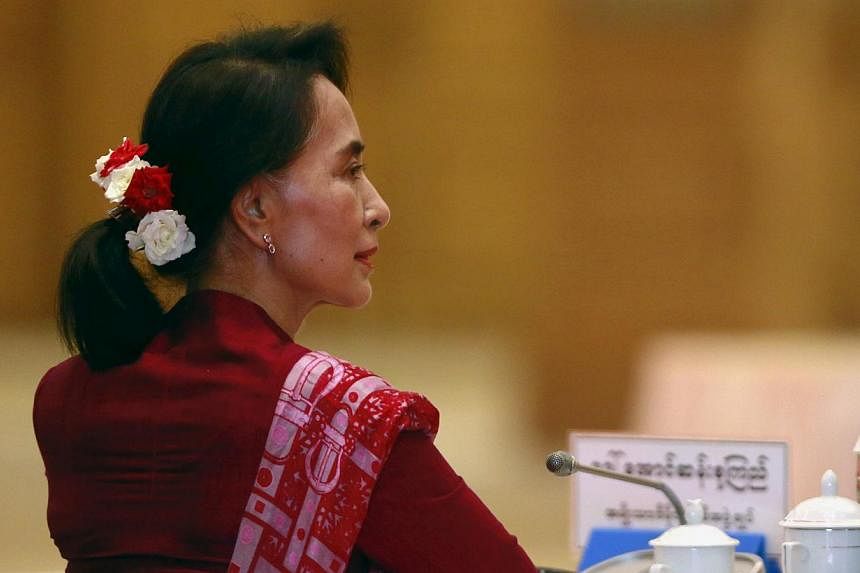NAYPYIDAW, Myanmar (AFP) - A second round of talks between the key players in Myanmar's looming election, including Aung San Suu Kyi, finished without resolution, a minister said on Friday, though he described the discussion as "successful."
Polls, slated for November, are being keenly watched as a litmus test for the veracity of reforms since 2011 when the military shed outright rule after decades of iron-fisted control.
Opposition leader Suu Kyi on Thursday refused to rule out a boycott of landmark polls, which her party is expected to win.
She is currently barred from the presidency by a constitutional clause she says was inserted by the army drafters specifically to block her path to the top office.
Talks in Naypyidaw started on Wednesday but were trimmed down to Friday's meeting attended by Suu Kyi, President Thein Sein, the nation's powerful army chief, parliamentary speaker Shwe Mann and representatives from the nation's ethnic minorities.
They agreed to hold further discussions, Information Minister Ye Htut told reporters, without specifying when.
"Everyone agrees it was a successful meeting, they were able to have an open discussion," he added, without giving details on the substance of the talks.
Suu Kyi's National League for Democracy (NLD) party wants to amend constitutional clauses that block their leader from the presidency and hand a crucial say over changes to the charter to the military, which holds a quarter of parliamentary seats.
The NLD is expected to sweep November's poll, the first countrywide election that the party will have contested in 25 years.
But Suu Kyi on Thursday declined to offer reassurances her party would participate in the election, as the NLD struggles to amend the charter to allow her to take the top job.
"We are not closing off any options. No one can know what will happen, so we have to calculate for every possibility," she told reporters in Naypyidaw.
Nevertheless Suu Kyi, whose party boycotted Myanmar's 2010 election while she was still under military house arrest, said November's polls were the greatest test yet of the country's much vaunted transition towards democracy.
Myanmar, formerly known as Burma and ruled by the British until 1948, was plunged into isolation by a military regime that seized power in 1962.
It has won praise for widespread economic and political reforms since it emerged from outright military rule in 2011.
But there are growing concerns reforms are backsliding in certain areas, including human rights and press freedom.
The Nobel laureate is currently banned from becoming Myanmar's president due to a provision in the junta-era constitution that bars those with a foreign spouse or children from the presidency.
The 69-year-old's two sons are British, as was her late husband.

